QuestionQUESTION: I have a 4 year old female Leopard Gecko who is in a 40 gallon cage. Their temp is around 80 degrees, with reptile carpet. She has always been very healthy up until a few weeks ago when she has stopped eating and losing weight in her tail and not being as active and alert. I have tried feeding her crickets, mealworms, waxworms. No success, she has turned them away. I have to admit I am not that good at dusting the crickets, as she will not eat them with the vitamin dust on them. She has shed a few days ago. Her stool is a light brown, then turns darker with a strong odor. I have been researching Cloccidia, which sounds like what she might have.
More Info: I bought a baby Leo 3 months ago and it is throwing up whole crickets and waxworms. Runny stool too.
Any information and suggestions would help so much, with what medication would help them get better. Thanks, Hannah
ANSWER: You're going to have to take them to a veterinarian, along with a fresh stool sample, for a proper diagnosis. It certainly sounds like they have an internal parasite, but while coccidia is a common one, it's not the only one. The specific drug used will vary depending on which parasite it is, and worming drugs in the proper dosages can only come from a vet prescription. (I also wish they could be sold over the counter, as I have a microscope, but you can only get them in doses made for horses--far too dangerous to try to cut down for reptile use). The new supplements that supposedly kill worms in reptiles are questionable at the very least--I would never use them, and they wouldn't be the right drug in the right dose.
Always quarantine new animals for at least 3 months before introducing them to the same room as existing animals--that shouldn't be done at all unless they've been completely healthy for that entire time. There are deadly diseases out there which could kill all of your animals.
80F sounds too cool, unless it is the air temperature in the cage. The temperature on the warm side of the cage should be 90F during the day. Insufficient temperatures can reduce immune function, activity, and appetite, and make it hard for the animal to digest food.
Crickets and mealworms should always be dusted with calcium powder (not a vitamin powder), as they are too high in phosphorus, and failing to supplement them will result in hypocalcemia (low blood calcium, bone loss, and other serious problems). Phoenix worms don't need to be dusted, as their calcium/phosphorus ratio is correct.
You'll probably have to replace the cage carpets. For now, put the animals on paper towel, and change it every single time they soil it--reducing their exposure to the parasites in their own droppings will help. Unless you boil the cage carpets, I don't think they'll be safe to use again--completely disinfecting them and killing all of the parasite spores isn't simple.
---------- FOLLOW-UP ----------
QUESTION: Thanks for your suggestions, I will definitely try them! I was wondering how much a fecal test is? I have researched and have read to feed them a turkey or chicken baby food with a syringe, until I take them to the vet. Is this correct or am I harming them? Thanks for your time , hannah
ANSWER: The cost of the test varies, as do veterinary rates--I would suggest shopping around a little, but it's important to find a vet who has reptile experience, so that may limit your options if you're in a more remote area. Choose a vet who sees reptiles often--there's no veterinary specialty for reptiles, unfortunately, so not all vets actually know what they're doing.
ARAV.org might help. If there is a local herp society, you can contact them and ask who they recommend.
I don't recommend feeding them anything at all--that's just stressful, and it won't help much until the underlying problem is fixed. Once they're undergoing treatment, the vet may recommend nutritional supplementation, but only if they have lost too much weight. He'll probably give you something like 'carnivore care' powder, not baby food. If the gecko still has tail weight left, it's best just to treat it, and then it will begin eating on its own. It is very important to get these guys to a vet immediately, as they've been suffering for a while now, and you don't want them to deteriorate to the point where they cannot be saved. Worming drugs are also hard on the animals, so they need to have some strength to make it through the treatment.
---------- FOLLOW-UP ----------
QUESTION: Is it possible to buy worming Meds online to no have to pay such an expensive bill buying them at the vet? I have seen panacur and pedialyte. My lizards do have quite a bit of tail mass left, but I have noticed weight loss. Thanks
AnswerNo. Again, worming meds in the proper concentrations to treat small animals are not available without a prescription--only livestock concentrations. I've been keeping and breeding reptiles for years, and I would not try to cut down those worming pastes or powders--the concentration is much too high, and it would take something like 3 tiny grains of panacur to treat a ball python. That's too imprecise, and much too risky.
What's more, Panacur isn't used to treat coccidia--it's used for worms. There are at least 2 different drugs for different types of protozoa, and 2 for worms (a different one for tapeworms than for the others). Coccidia is usually treated with Sulfadimethoxine, but you don't yet know whether it IS coccidia, or something else. You should cross your fingers that it is something else--Sulfadimethoxine is brutal on the animal's system, and you'll need to help restore their gut bacteria after treatment. Coccidia is one of the harder parasites to deal with. Flagyl (metronidazole), which is used for other protozoa, is safer, but it doesn't work well against coccidia.
Unless your vet is a total rip-off, you should really be able to get all of this done for under $200 (including office visit, parasite test, and meds). The good news is, if you successfully treat the animals now, all you'll need to do is a $10 to $30 fecal exam once a year, and it's unlikely that they'll ever get sick again. Leopard geckos are generally very hardy when kept properly. It's unfortunate that you purchased an animal that was already very sick, with a contagious problem.
If the vet does come back with a diagnosis of coccidia, it's vitally important to disinfect and clean pretty much every day--to completely eliminate the coccidia from the environment, you have to be extremely diligent, because it's a tough parasite that can persist, and it has a direct life cycle (the animal can reinfect itself, from eggs in its own waste). Such hospital-level cleaning won't be required once the coccidia are completely gone, but until then, treat everything the animals have touched as contaminated, and disinfect it with something strong enough to kill coccidia.

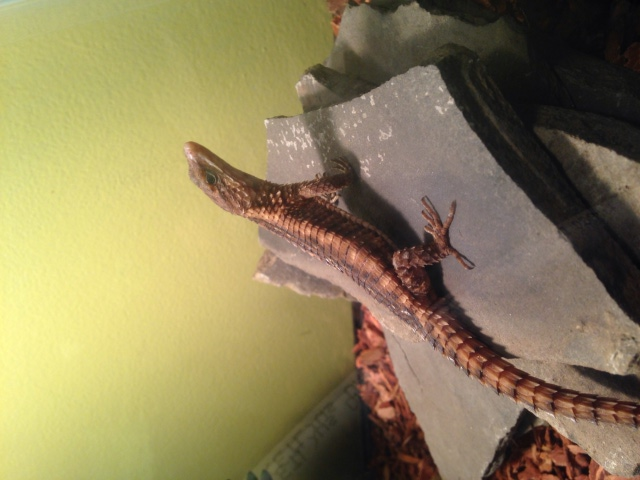 Armadillo lizard
Question
Lizard
Yes im having troubles with my
Armadillo lizard
Question
Lizard
Yes im having troubles with my
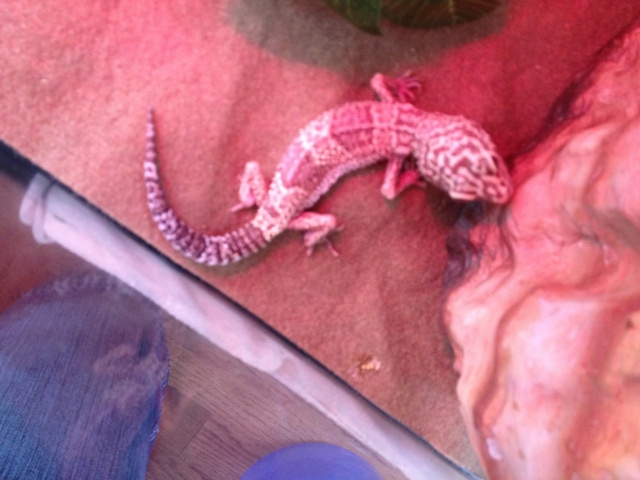 Is My Sons Leopard Gecko Dying?
QuestionQUESTION: My 9yr old son has has a leopard geck
Is My Sons Leopard Gecko Dying?
QuestionQUESTION: My 9yr old son has has a leopard geck
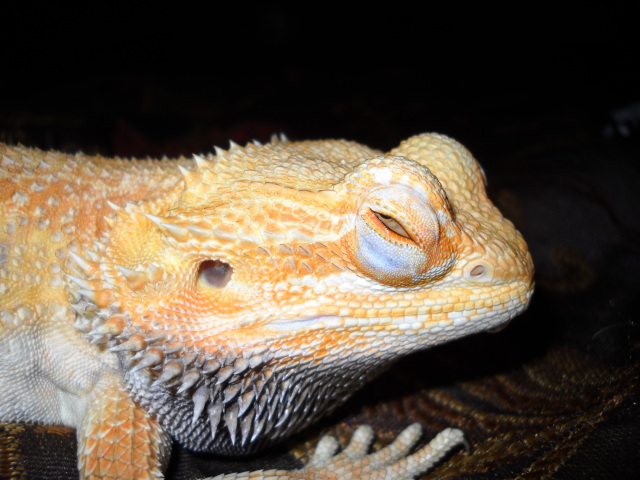 Bearded Dragon Swollen Eyes
QuestionBow
QUESTION: Hi Tracie,
I have a bearde
Bearded Dragon Swollen Eyes
QuestionBow
QUESTION: Hi Tracie,
I have a bearde
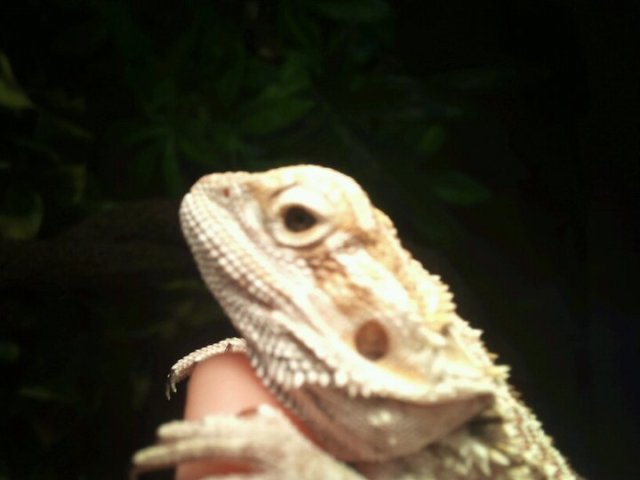 vedetta
QuestionVendetta
QUESTION: Hello Kandis,
How i
vedetta
QuestionVendetta
QUESTION: Hello Kandis,
How i
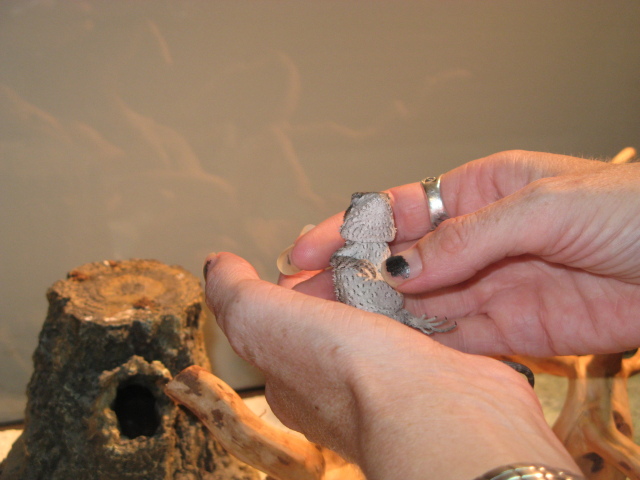 Beardie & Greens?
QuestionBearded Dragon (Puff)
QUESTION: How do I
Beardie & Greens?
QuestionBearded Dragon (Puff)
QUESTION: How do I